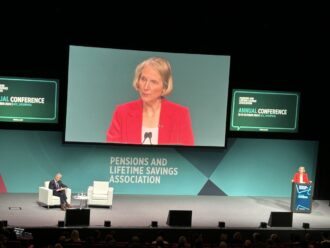As budgets come, Jeremy Hunt’s 2023 spring budget was pensions heavy. While much has been made of the decision to scrap the Lifetime Allowance, Hunt’s announcements could also have significant investment implications.
LGPS pooling overhaul
Hunt indicated that he wants to crank up the pace and scale of LGPS pooling. The government has set pension funds part of the Local Government Pension Scheme a March 2025 deadline to fully move their assets to their respective pool.
A document accompanying yesterday’s budget, stated: “The government is challenging the Local Government Pension Scheme in England and Wales to move further and faster on consolidating assets.”
A soon to be published government consultation will reiterate this deadline and set the direction for the future of pooling, added the document.
The budget paper also presented a scenario where the pooling system may be rearranged dramatically. “This may include moving towards a smaller number of pools in excess of £50 billion to optimise benefits of scale. While pooling has delivered substantial benefits so far, progress needs to accelerate to deliver and the government stands ready to take further action if needed.”
This is clear in its intentions – but the move to a smaller number of pools could prove controversial. So far, only Border to Coast and LGPS Central manage assets of more than £50bn.
The dispute between the Kensington and Chelsea pension fund and London CIV has highlighted the disquiet among some funds towards pooling and also shone a light on how some funds have little, or no assets pooled.
While at the same time, some of the pools have expressed a desire for a speedier move to consolidating assets under the pooling system.
How local funds will respond to the pooling assets deadline, remains to be seen.
The timeframe for the consolidation of assets is a long one – two years away – so a great deal could play out during that time.
The Pensions and Lifetime Savings Association (PLSA) offered a dissenting voice. Nigel Peaple, PLSA director of policy and advocacy, said: “As it is only five years since the first pooling reform which set up eight investment pools to serve the around 90 local authority pension funds in England and Wales, we think a further large-scale reform would be unlikely to achieve very much at this time.”
The government document also reiterated proposals put forward by chancellor Jeremy Hunt last December for LGPS investments to commit to more illiquid assets.
The budget paper stated: “The government will consult on requiring LGPS funds to consider investment opportunities in illiquid assets such as venture and growth capital, thereby seeking to unlock some of the £364 billion of LGPS assets into long-term productive assets.”
DC nudge
On a similar theme, Hunt also set out plans in the budget to nudge defined contribution (DC) pension fund investment into the UK innovative firms sector.
This would involve measures to boost the formation of new vehicles for investment into science, tech and other innovative companies, to fit the specific needs of UK DC pension schemes, through a new long-term investment for technology and science (Lifts) initiative.
Hunt said companies across science and tech sectors includinggreen industries, digital technologies, life sciences, the creative industries and advanced manufacturing – needed the necessary capital to start up and expand in the UK.
The budget document said: “To develop the next generation of globally competitive companies that grow and list in the UK, and to bolster the retirement incomes of millions of ordinary people, it will be critical to unlock DC pension fund investment into the UK’s innovative firms.”
On this, Hunt said the government will work closely with industry and regulators to bring forward an “ambitious package of measures” by the autumn.
The assertion being that pension funds, with vast amounts of capital are an obvious candidate for investment in this area.
The announcement comes amid a report in the Financial Times, that Nicholas Lyons, the City’s Lord Mayor is advocating in favour of a forced 5 % contribution by DC pension funds to a future growth fund.
Hunt’s measure falls one step short of these demands, he nevertheless announced the creation of a Lifts initiative which aims to pool DC investment in the tech sector.
Two questions can be raised here: how much are pensions being asked to do the government’s investment heavy lifting? And how feasible are such investments to the respective pensions funds?
These questions may well dominate the debate going forward.
On the DC initiative, the PLSA’s Peaple said his organisation has been working with the government and will do so going forward. “The government has made clear that it wishes to find ways to encourage private sector pension funds to invest in the UK. We have worked with the government on this issue in the Productive Finance Working Group and look forward to contributing to their further work in this area, both on the Lifts initiative, and on any broader proposals planned for the Autumn Statement.”





Comments